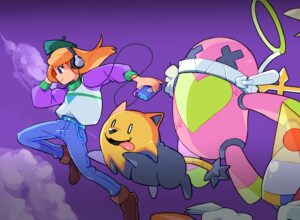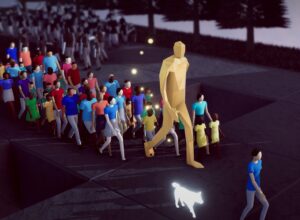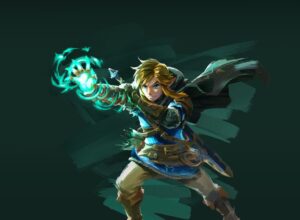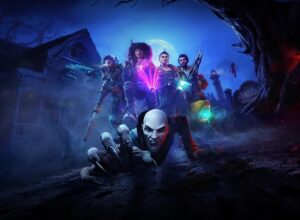We believe the children are our future.
The British Academy of Film and Television Arts (BAFTA) has been branching out in recent years.
Originally known as the British Film Academy following its inception in 1947, the British Academy Film Awards have always been like a sort of mini-Oscars. Then there’s the BAFTA British Academy Television Awards, which are a bit like the British version of the Emmy Awards.
Out from under the shadows of our American cousins, BAFTA have been doing good things in the world of video games. They’ve been dishing out Video Games Awards since 1998 (originally under the BAFTA Interactive Entertainment Awards moniker until 2003) and have also been celebrating the best of young gaming talent in the BAFTA Young Game Designers awards.
 Now in its fifth year the BAFTA Young Game Designers event presents awards in two main categories for budding game developers between 10 and 18: The Game Concept Award, for a written idea for a new game; and the Game Making Award, for a game made using computer software.
Now in its fifth year the BAFTA Young Game Designers event presents awards in two main categories for budding game developers between 10 and 18: The Game Concept Award, for a written idea for a new game; and the Game Making Award, for a game made using computer software.
Here are the winners from 2015’s BAFTA Young Game Designers awards, along with the judges comments:
Game Concept Award (10-14) – Dreams
Camylle Tuliao (14)
Basildon, Essex
Dreams is a first person role playing adventure game set in four different locations, Imaginati, Reve, Nightmare and Limbo. Playing as Christelle/Christopher the way to win is different in every world and you have the choice of three fighting styles, Imagi (magic), Logio (science) and Void (dream-manipulating).
The jury described the game as “an evocative concept that intertwined unique themes to create a psychological thriller.”
Game Concept Award (15-18) – Ouroboros
Jack Reynolds (15)
Highgate, London
Ouroboros is a puzzle-platformer in which you have to “die” and respawn to progress. Every time you die your previous actions still have an effect and every time you connect to a terminal you discover a little more about #0132’s purpose, why he was created and about the world outside the factory’s walls.
The jury said that this game was “cleverly designed to consistently reinforce its central theme, and simple yet addictive gameplay.”
Game Making Award (10-14) – Block
Louis Jackson (11)
Hove, East Sussex (entered through Blatchington Mill School)
You are Block, and your world changes instantly. Colour fades away and land breaks apart to make platforms. In each level, you can only jump a certain amount of times, but there is no counter for it, because it’s your duty to study the level and how many jumps you have.
The jury described the game as “a refreshingly original and surprisingly high quality concept; not only for this age category but for any up-and-coming game developer.”
Game Making Award (15-18) – Utopia of Rhythm
Jack Mills (17)
Liverpool (entered through The Studio school)
Utopia of Rhythm is a platformer game that incorporates elements from the rhythm game genre. The obstacles within the game’s level change over time, to the beat and tempo of the background music. A colour-coded rhythm clock is used as part of the user interface to indicate the level’s transformations over time, as the obstacles are similarly colour-coded.
The jury felt that this game “meets the standards of professional prototypes. A wide variety of mechanics and puzzles were rolled out with a well-balanced difficulty curve of the levels.”
There are also a couple of categories that grown-ups are allowed into:
YGD Mentor Award
Ray Chambers, Head of IT at Uppingham Community College
Rutland, East Midlands
Ray Chambers runs a successful extracurricular coding club for his students and also visits local primary schools to introduce younger children to coding. He is a regular blogger and has his own YouTube Channel.
The jury said: “We were incredibly impressed and heartened by the enthusiasm and innovation demonstrated by all of the nominees. Amongst them Mr Ray Chambers stood out for the way he’d used social media to take his teaching outside the classroom and his commitment to engaging a diverse range of young people in the magic of game design.”
YGD Hero Award
Minecraft
Mojang Development Team
Minecraft allows players to create unique worlds by breaking and placing blocks. Is has sold over 70 million copies since its creation in 2009, and its online tutorials and play throughs have millions of viewers across the world, making the creators of these videos stars in their own right. The game has broken down the traditional barriers between players and makers and has inspired many thousands of people to try their hand at designing and exploring game worlds of their own, often with amazing results.
The BAFTA Games Committee said: “Minecraft’s achievements in the games industry, as well as its support for millions of creative people of all ages, are truly impressive.”
Well done to everyone involved!
For a full list of the winners and finalists, and to play the games in the Game Making category, go to http://ygd.bafta.org/competition






